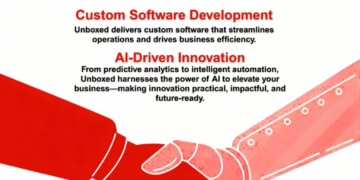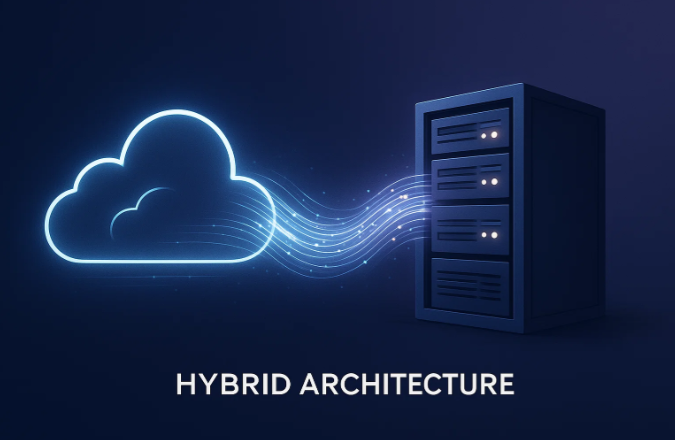New Hybrid Paradigms Combine Cloud Agility and On-Premises Control with DevOps Cloud as a Platform at the Core
Plano, Texas – October 28, 2025 – As enterprises continue to navigate the accelerating pace of digital transformation, a growing number of organizations are adopting hybrid data architectures to harness both the scalability of the cloud and the reliability of on-premises systems. This new architectural approach—powered by DevOps Cloud as a Platform—is redefining how modern enterprises manage, process, and secure their data across distributed environments.
In a world where data volumes are doubling every 18 months, businesses face mounting pressure to optimize their infrastructure for real-time insights, compliance, and operational agility. Hybrid data architectures have emerged as the most effective solution—allowing enterprises to unify legacy systems with modern cloud capabilities while maintaining full control over data residency and performance.
Bridging Two Worlds with Intelligent Orchestration
Hybrid data architectures seamlessly integrate on-premises data centers, private clouds, and public cloud environments into a single operational model. This allows organizations to position workloads strategically—leveraging the cloud for compute-intensive analytics while keeping sensitive workloads on-premises for security or compliance reasons.
By embedding DevOps Cloud as a Platform practices into these ecosystems, organizations can achieve unified orchestration, faster deployments, and automated governance across environments. This convergence enables data teams to provision resources, deploy updates, and monitor performance through automated pipelines—reducing downtime, cost, and human dependency.
“Enterprises are no longer choosing between cloud or on-prem—they’re combining both strategically,” said Rohit Mehra, VP of Cloud Solutions at Impressico. “Hybrid data architectures, reinforced by DevOps Cloud as a Platform, are enabling organizations to innovate rapidly while staying compliant and cost-efficient.”
Driving Real-Time Insights Through Unified Data Fabrics
A defining feature of hybrid data architectures is the data fabric—a layer that connects and manages distributed data environments through a unified governance and access model. This enables real-time analytics across diverse systems without replicating large datasets, improving efficiency and visibility.
Incorporating DevOps Cloud as a Platform allows these data fabrics to evolve continuously. Automated workflows synchronize updates, monitor data pipelines, and scale resources based on live usage metrics. As a result, organizations gain the ability to analyze, act, and adapt faster than ever before.
AI, Automation, and the Next Stage of Data Operations
The integration of AI and automation is taking hybrid architectures beyond simple interoperability. Predictive algorithms now determine where workloads should run—whether in the cloud or on-premises—based on latency, cost, and compliance factors.
“Intelligent automation built into hybrid frameworks allows systems to self-optimize,” explained Anita Kapoor, Chief Data Officer at Impressico. “By combining DevOps Cloud as a Platform with AI-driven orchestration, we’re moving toward environments that can manage, monitor, and even remediate themselves with minimal human input.”
This self-optimizing capability reduces operational overhead while maintaining peak system performance. Data pipelines are now monitored by machine learning models that detect anomalies, rebalance workloads, and enforce governance policies automatically.
Security and Compliance: Reinvented for Hybrid Realities
Security remains a top priority in hybrid environments. With data moving across multiple clouds and on-premises systems, maintaining compliance requires a unified approach. DevOps Cloud as a Platform enables “security as code,” embedding governance controls directly into CI/CD pipelines.
This ensures that every infrastructure change, database update, or application deployment adheres to compliance frameworks such as GDPR, SOC 2, and HIPAA. Continuous monitoring tools offer visibility into access patterns and policy adherence, ensuring data integrity across the full hybrid spectrum.
“Organizations are realizing that automation and compliance are not at odds—they’re complementary,” added Kapoor. “By codifying security into every deployment, hybrid architectures become inherently safer and easier to audit.”
The Future: Toward Federated and Self-Managing Data Ecosystems
Experts predict that hybrid data architectures will serve as a foundation for federated data systems—where data remains distributed but can be queried, analyzed, and secured as if it were centralized. As these systems mature, the role of DevOps Cloud as a Platform will expand further, driving intelligent orchestration and self-healing capabilities across the data lifecycle.
Emerging technologies like AI Ops, federated learning, and digital twins are expected to play major roles in advancing these architectures. Together, they will enable enterprises to predict demand, optimize resources, and execute continuous performance tuning across diverse environments.
Industry Outlook
Analysts note that hybrid models have moved from experimental to essential. A 2025 IDC study found that over 72% of enterprises now operate with hybrid data strategies, driven by the need to balance performance and compliance. The integration of DevOps Cloud as a Platform has accelerated this trend, reducing operational friction and enabling consistent innovation across geographies and technologies.
“Hybrid data architecture is not just a technology choice—it’s a business strategy,” said Mehra. “The organizations that master hybrid operations will lead the next wave of intelligent, data-driven transformation.”
About Impressico
Impressico is a global technology and consulting firm delivering digital transformation solutions in DevOps, data engineering, cloud computing, and AI. With deep expertise in hybrid and multi-cloud environments, Impressico helps enterprises modernize legacy systems, accelerate innovation, and scale securely through automation-driven strategies like DevOps Cloud as a Platform.
For more information, visit www.impressico.com.
















